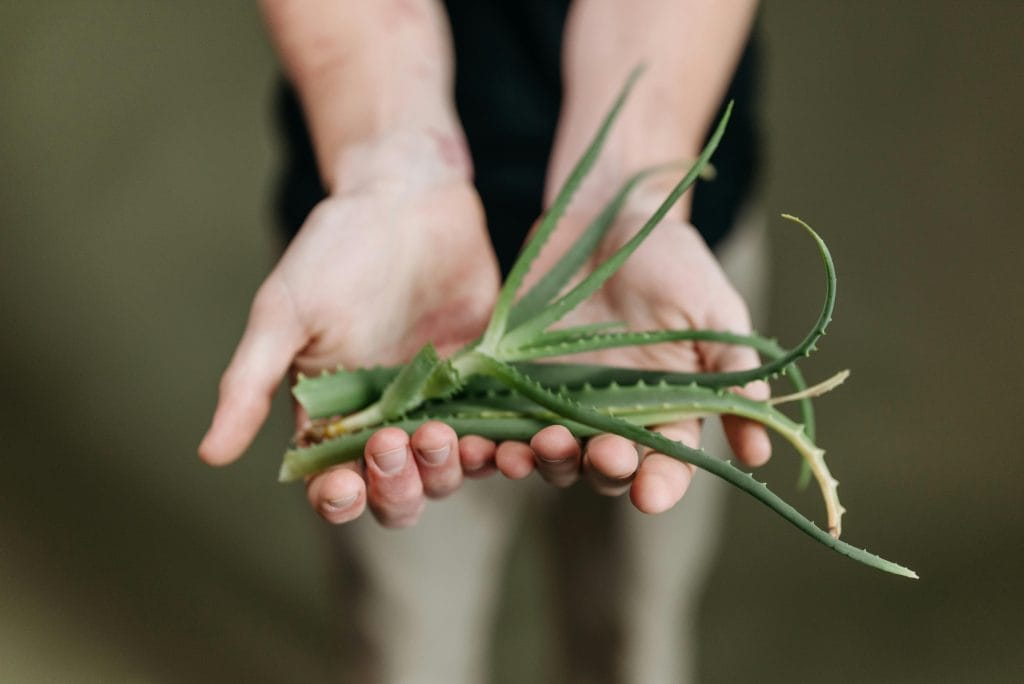The Natural 3-in-1 Fix: How Aloe Vera Gel Can Soothe, Clean, and Heal
In the world of skincare, few ingredients have earned the legendary status of aloe vera. This unassuming plant, often found in our backyards or as a decorative houseplant, is revered for its versatile benefits in soothing, cleaning, and healing the skin. From treating sunburn to combating acne and even speeding up the healing of cuts and scrapes, aloe vera gel has become a staple in both traditional remedies and modern beauty products. But what makes this plant so special? Let’s dive into the science behind aloe vera and explore how it can be an all-natural fix for many of our skin concerns.
What is Aloe Vera Gel?
Aloe vera is a succulent plant that stores water in its leaves, creating a thick, clear gel with an abundance of skin-loving properties. This gel contains a rich mix of vitamins, minerals, enzymes, amino acids, and antioxidants, all of which contribute to its potent skin benefits. It’s this powerful combination of ingredients that has made aloe vera a go-to remedy for everything from minor skin irritations to more serious skin issues like burns and wounds.
The Three Main Benefits of Aloe Vera
When it comes to skincare, aloe vera is often celebrated for its ability to soothe, cleanse, and heal. Each of these properties plays a crucial role in maintaining the health and appearance of your skin.
1. Aloe Vera as a Skin Soother
Soothing is perhaps what aloe vera is most famous for. Whether it’s sunburn, a minor rash, or irritation from shaving, aloe vera has the unique ability to cool and calm the skin almost instantly.
The Science of Soothing
Aloe vera contains a compound called aloesin, which is known for its anti-inflammatory properties. When applied to irritated or inflamed skin, it helps to reduce redness and swelling, making it a quick and effective remedy for conditions like sunburn or eczema. Additionally, the high water content of aloe vera provides a cooling effect that offers immediate relief from the burning or itching sensations often associated with these conditions.
How to Use Aloe Vera for Soothing:
- For Sunburn Relief: Apply a generous layer of aloe vera gel to the affected area. The cooling sensation will provide immediate relief, while the works to repair the damaged skin and prevent peeling.
- For Shaving Irritation: Apply aloe vera after shaving to calm irritated skin and prevent razor burn.
- For Sensitive Skin: If you suffer from conditions like eczema or rosacea, incorporating aloe vera into your skincare routine can help soothe flare-ups and calm inflammation.
2. Aloe Vera as a Gentle Cleanser
Aloe vera is also an excellent natural cleanser, especially for people with sensitive or acne-prone skin. Many traditional cleansers contain harsh chemicals that can strip the skin of its natural oils, leading to dryness and irritation. Aloe vera, on the other hand, offers a gentle alternative that cleans the skin without causing damage.
A Natural Antibacterial
Aloe vera contains antibacterial and antimicrobial properties, which help to clean the skin by removing impurities and bacteria. This makes it especially effective in preventing acne outbreaks and other skin infections. Its natural cleansing properties make it an ideal choice for daily use, particularly for those with sensitive skin that reacts poorly to chemical-laden cleansers.
How to Use Aloe Vera for Cleansing:
- As a Daily Cleanser: Massage aloe vera gel into damp skin in circular motions, then rinse off with lukewarm water. This will remove dirt, oil, and makeup while keeping your skin soft and hydrated.
- For Acne-Prone Skin: Apply a thin layer of aloe vera after cleansing. Its antibacterial properties help fight acne-causing bacteria, while its soothing nature reduces redness and inflammation.
- For Sensitive Skin: Use aloe vera gel as a gentle face wash in the morning and evening. Its mild formula won’t strip your skin of its natural oils, leaving it clean and calm.
3. Aloe Vera as a Healing Agent
One of the most remarkable properties of aloe vera is its ability to speed up the healing process of the skin. From minor cuts and burns to post-acne scars, aloe vera has been used for centuries to treat a variety of skin injuries.
The Science Behind Healing
Aloe vera contains a growth hormone called gibberellin, which helps to stimulate cell growth and repair damaged tissues. This makes it especially effective in treating burns, wounds, and scars. In fact, studies have shown that aloe vera can accelerate the healing of first and second-degree burns by boosting collagen production, which helps to rebuild the skin’s structure.
In addition to promoting faster healing, aloe vera also has analgesic properties, meaning it can help reduce pain associated with cuts, burns, or other skin injuries. Plus, its hydrating nature ensures that the skin stays moisturized during the healing process, which is essential for preventing scarring.
How to Use Aloe Vera for Healing:
- For Minor Burns and Cuts: Apply aloe vera gel directly to the affected area. Repeat several times a day to promote faster healing and reduce pain.
- For Acne Scars: Aloe vera can help fade post-acne marks and scars. Apply a thin layer to the affected areas twice a day for smoother, more even-toned skin.
- For Post-Surgical Scars: Aloe vera gel can also be used to minimize the appearance of surgical scars. Its ability to stimulate cell growth and repair damaged tissue makes it a natural solution for healing and reducing the visibility of scars over time.
Aloe Vera: The Perfect All-in-One Skincare Solution
What makes aloe vera stand out is its versatility. Whether you’re looking to soothe, cleanse, or heal your skin, aloe vera offers a natural and effective solution. Moreover, it’s gentle enough to be used by all skin types—even the most sensitive.
Key Reasons to Incorporate Aloe Vera Gel into Your Routine:
- Natural and Safe: Aloe vera is a plant-based ingredient that is free from harsh chemicals, making it a safe choice for people with sensitive or allergic skin.
- Hydrating Without Clogging Pores: Aloe vera is incredibly hydrating but lightweight, meaning it won’t clog your pores, making it ideal for people with oily or acne-prone skin.
- Cost-Effective: Aloe vera gel is often more affordable than high-end skincare products, yet it offers the same, if not better, results.
DIY Aloe Vera Tips
If you want to take your skincare routine to the next level, here are a few simple DIY recipes using aloe vera gel:
- Aloe Vera Face Mask: Mix aloe vera gel with honey and lemon juice for a hydrating, brightening mask. Apply to your face for 10-15 minutes, then rinse with lukewarm water.
- Aloe Vera Hair Mask: Combine aloe vera gel with coconut oil and apply it to your hair for a deep-conditioning treatment. Leave it on for 30 minutes before washing out for soft, shiny locks.
- Aloe Vera Toner: Mix equal parts aloe vera gel and rose water for a soothing, hydrating toner. Use it after cleansing to balance your skin’s pH and lock in moisture.
Conclusion: Aloe Vera’s Time-Tested Benefits
Aloe vera is truly an all-natural powerhouse that can soothe, cleanse, and heal your skin. Whether you’re dealing with sunburn, acne, or minor cuts, this plant-based remedy offers a gentle yet effective solution for all your skin’s needs. Incorporating aloe vera gel into your daily skincare routine not only helps maintain healthy skin but also promotes long-term healing and protection from environmental stressors.
When it comes to achieving healthy, glowing skin, sometimes nature really does know best—and aloe vera is proof of that.
Reference
10 Benefits of Using Aloe Vera on Your Face

